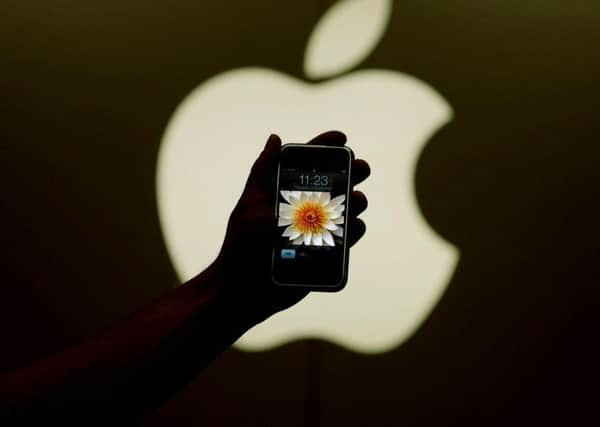Jayne Dowle: Working out the mysteries of the mobile phone and iPhone 7


I really don’t care whether the latest Apple product comes with an aerial capable of making contact with life on other planets. What I would really like is a mobile phone which works effectively all the time and doesn’t come with a contract that rips me off.
There is no point having the latest all-singing, all-dancing piece of hardware if using it costs the price of a small mortgage every month.
Advertisement
Hide AdAdvertisement
Hide AdThat’s if you can use it at all. A recent report by consumer organisation Which? tested the four largest mobile networks in the UK to see how their much-vaunted 4G data speeds perform. It found that customers were only able to access high-speed 4G mobile date 53 per cent of the time on average.
If you want to send photos, or check something out on Facebook, this means that your phone effectively only works half of the time.
That’s the official verdict. The unofficial one is that smartphones are a law unto themselves all too often. We rely so much on this rectangle of technology, small enough to fit into the palm of our hand. Indeed, quaint old-fashioned landlines are becoming consigned to history.
Yet who really knows how it works? The inner machinations of a typical handset are so complex, they’re beyond the understanding of a person of even average intelligence. I’m surprised some university has not come up with an entire three-year degree entitled “smartphone studies”.
Advertisement
Hide AdAdvertisement
Hide AdTake the issue of “storage”. My own iPhone is littered with standard Apple-issue apps which I can’t get rid of, no matter how hard I try.
For example, I don’t particularly need a Nike + iPod app to help me with my running because I don’t go running. Try as I might, though, I can’t get rid of it. When I am attempting to take a photograph, and failing because there isn’t enough mysterious “storage” available, it sits there glowering at me in defiance, refusing to budge off my handset.
My other half meanwhile looks as if he is saddled with “Find My iPhone” for life. His cousin told him it was a good idea to install it as a security measure in case he ever loses his phone (which he does, quite often). What his cousin didn’t tell him, however, is that once installed, Find My iPhone eats up storage for breakfast, dinner and tea. Even when he upgraded phones, it followed him. It takes up valuable space that could be used for music and photos. And even his phone company couldn’t help.
Ah yes, the phone companies. To be honest, failing to deliver on superfast 4G speeds is the least of my concerns here. I’ve been with Vodafone for more than 20 years. In fact, a delightful chap I once spoke to at their call centre in Egypt informed me that I was one of their first customers.
Advertisement
Hide AdAdvertisement
Hide AdI have to say that most of the time, even I can’t complain about the service I’ve received. What irks me, though, are those stomach-dropping texts that arrive out of the blue, brightly informing me that “my bill is ready”, as if a delicious meal was about to be served up. In reality, this can be extremely unpalatable.
Especially when this bill turns out to be about four times more than my average monthly outlay of around £40. This is usually because I have had to call a number beginning with 08 or similar. Like the time that my Sky phone/broadband/TV package refused to work and I foolishly rang their service desk on my mobile, without checking to see if the number was a high-call charge line.
I soon found out it was when Vodafone billed me for about £45 for this single call, which included a large amount of VAT. There was nothing I could do because the onus is on the customer to check cost per minute first. Who, though, is capable of being in such a constant state of hyper-vigilance? Not me. I’m simply not mentally geared up to assimilate that much information and keeping it all in my head. And, I have to say, I’m not sure the people who man the call centres are either.
When we went on holiday to Spain this summer, I made a point of phoning my partner’s provider, EE, to check call and usage charges abroad. That’s because as well as his own troublesome device, he has the children’s phones on his deal. I didn’t want to come home to a bill higher than our holiday spending money.
Advertisement
Hide AdAdvertisement
Hide AdThe nice Irish lady who advised us about switching off mobile data and so on was extremely helpful.
She was also extremely wrong. When we landed, we received a series of texts from EE which contained information running entirely counter to what she had told us. In the end, thanks to my hawk-like surveillance regarding use of the internet, we received no nasty surprises on return.
It does beg this question, though: if those who work for the phone companies don’t know how mobile phones and their byzantine contracts work, what hope have the rest of us?